Foods for brain health and stress relief. I’m digging into the science on brain health and turmeric, sage, blueberries, and more.
This post is sponsored by Sprouts Farmers Market.
When I attended HelloSprouts this this year, one of the speakers brought up some thought provoking topics not least of which, the role that several foods might play in brain health. He talked about turmeric, blueberries. and sage among others.
One of the most fascinating points was the idea that we can eat specific foods to help reduce the rate that the brain ages. Specifically, one speaker focused on ways to increase brain-derived neurotrophic factor (BDNF) – a protein that may “stimulate the production of new brain cells and/or strengthen existing ones.” I had not heard of BDNF before. I didn’t even think it was possible to produce new brain cells. Needless to say, I was intrigued and had to take a closer look.
[clickToTweet tweet=”ad: Foods for a healthy brain and stress relief. #brainhealth #healthyeating” quote=”ad: Foods for a healthy brain and stress relief. #brainhealth #healthyeating”]
Blueberries are a well-established brain food. Including them fresh, frozen, or dried is pretty easy to do. They work well tossed into salads, blended into smoothies, or eaten right out of hand. Sage… Well, sage is not an herb that people use very often outside of the fall season and particularly Thanksgiving. The research on sage – sage extracts, not the leafy greens you get at the store – looks good though. Taking sage extracts may be effective at improving cognitive function in people with mild to moderate Alzheimer’s disease and may enhance memory and attention. The catch? You won’t reap these benefits from the tiny dose of sage you’ll get in your Thanksgiving stuffing next month.
What about turmeric? I’ve talked a bit about it here before but it deserves another look.
Turmeric is a root spice commonly used in Asian food. Curcumin is the active compound that lends it’s signature goldenrod hue. Though used in traditional medicine for years, the evidence supporting turmeric’s potential brain health benefits is far from solid. The strongest evidence shows that turmeric extracts may help reduce bad cholesterol levels and improve symptoms of osteoarthritis but preliminary research suggests that curcumin may help with depression, diabetes, gingivitis, Crohn’s disease, and reduce some symptoms of Rheumatoid arthritis.
What does all of that mean? It means there’s a good chance that some people who take good quality turmeric supplements may see a reduction in their total and LDL cholesterol levels and may experience less osteoarthritis pain. It also means that you may or may not see improvements with the other conditions. Does that mean I won’t include it in my life? Nope. I definitely will. Sometimes it takes time for research to catch up with reality and everyone is different.
I enjoy using turmeric in cooking and especially enjoy Golden Milk. I made my own but during the vendor expo while we were visiting Sprouts, I also got to sample a Golden Milk mix by Gaia. It has a generous dose of turmeric along with the necessary black pepper plus ashwaganda, shown to help with stress relief. It’s pleasantly seasoned with cardamom and finished with date powder for a hint of natural sweetness. It’s a definite keeper. And though the color is a bit much for first timers, I shared this drink with 60 people at a demo at Sprouts last month. All unfamiliar with the idea, they cautiously sipped and found that they loved it!
It’s important to note that eating the foods I mentioned will not guarantee a healthy, Alzheimer’s free brain. There are many factors that go into brain health and wellness so holding 1-2 in high regard in expense of the others may have some unintended consequences. Consider your overall diet, level of stress, ability to relax, sleep, exercise, and other activities that can also impact brain health. And check back here often – I’m going to keep exploring this topic and sharing more as I learn!

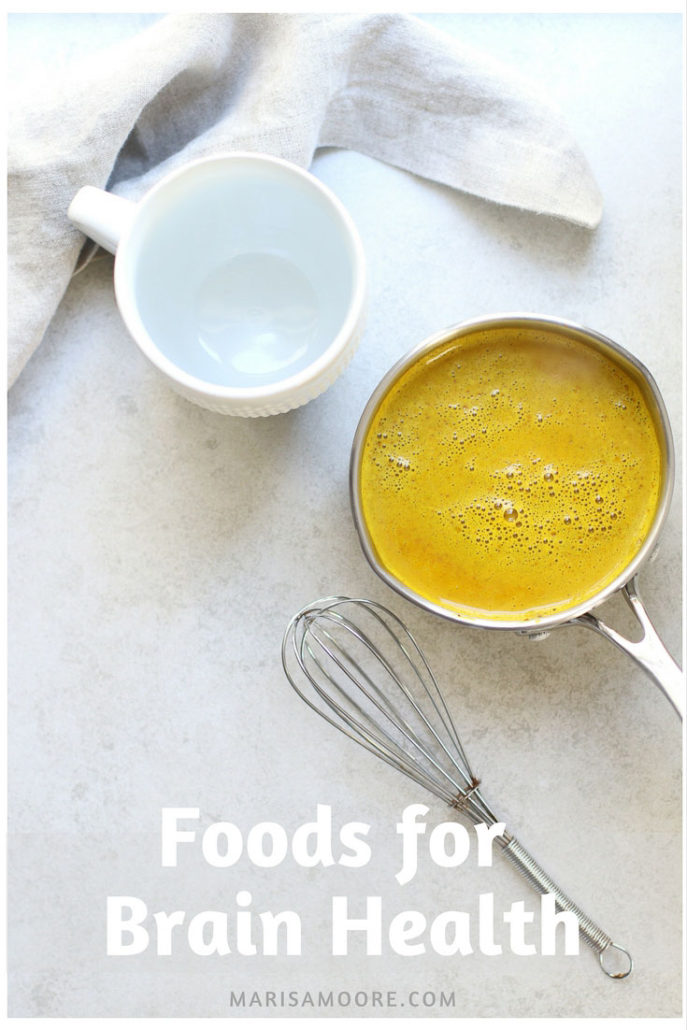
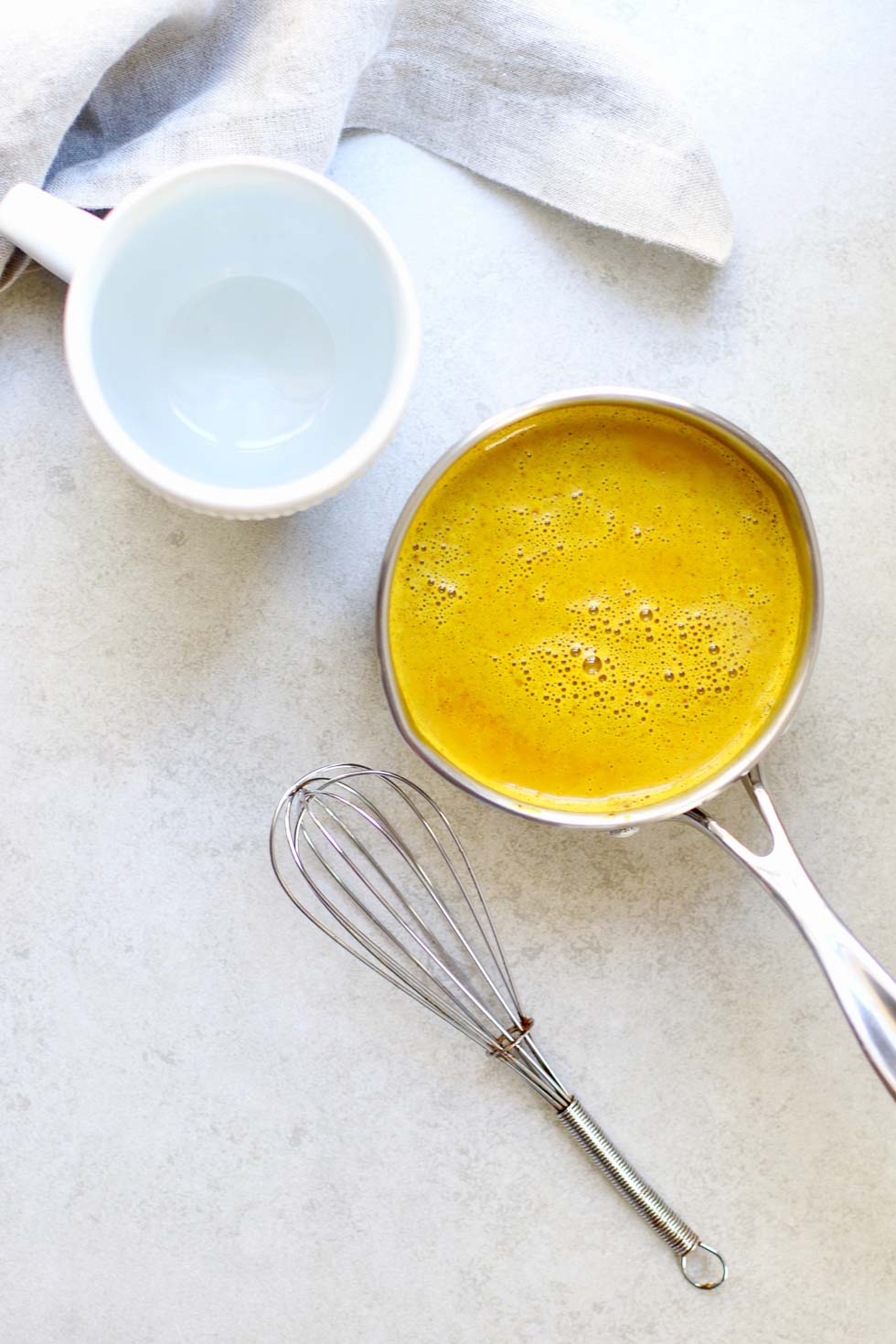
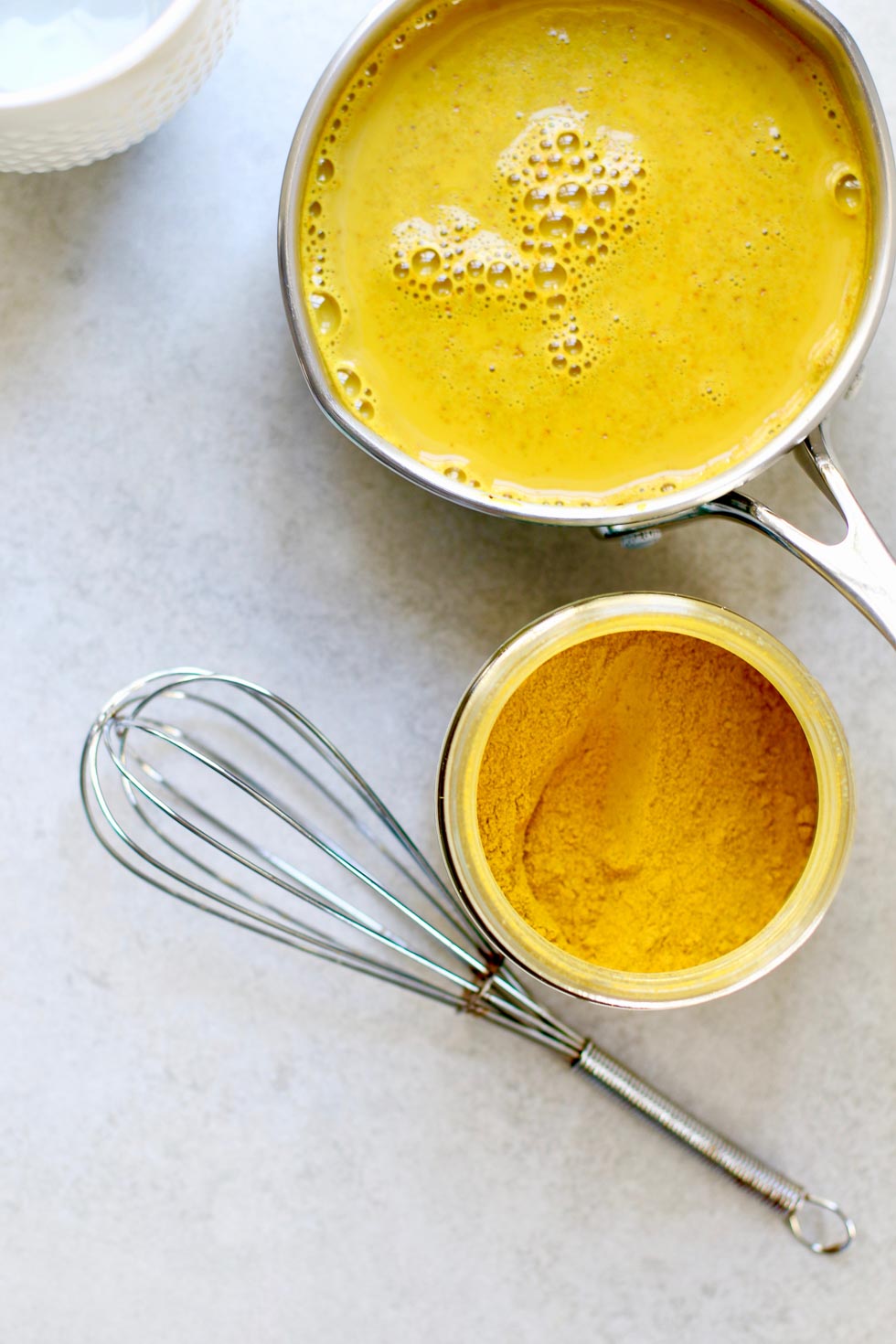
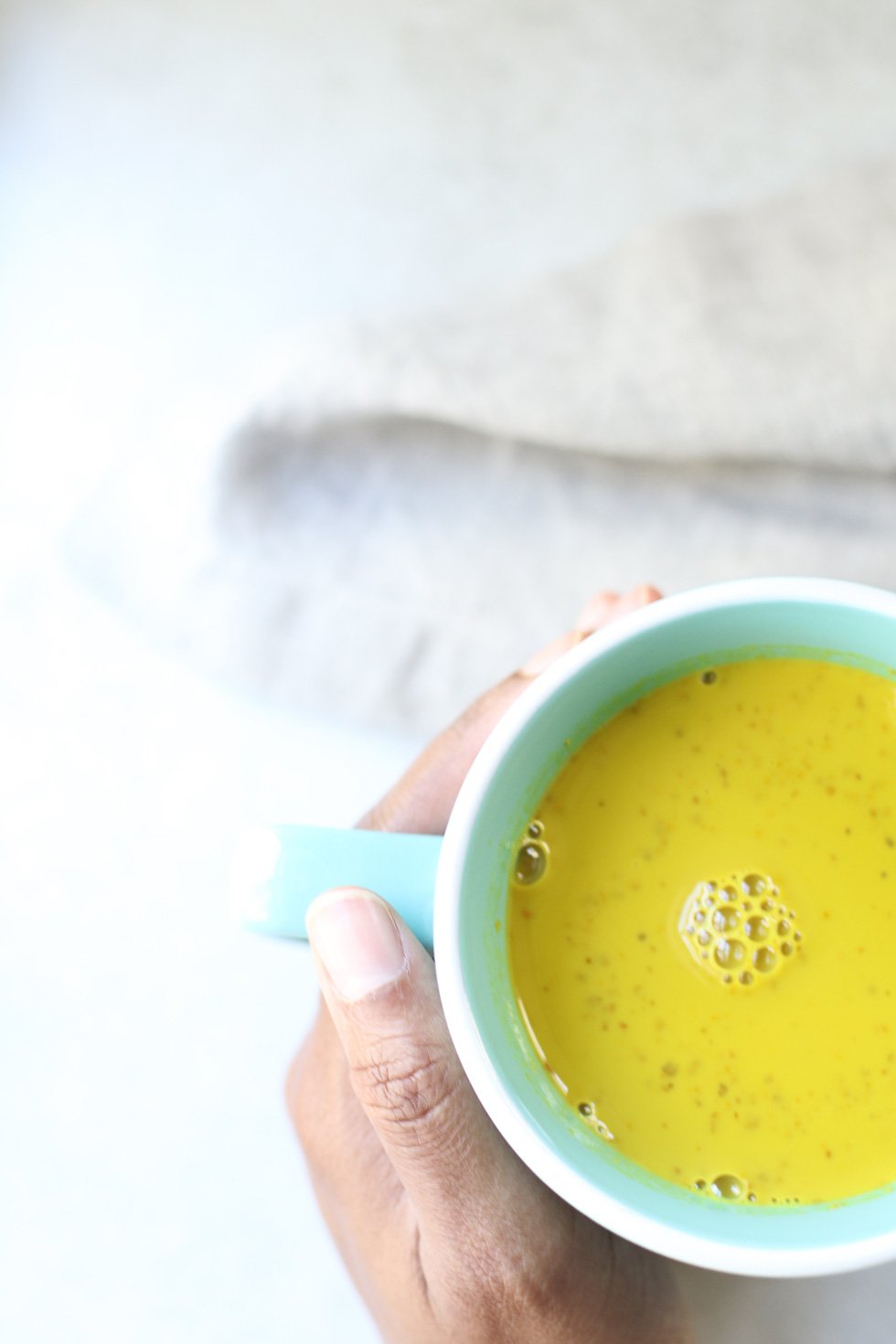
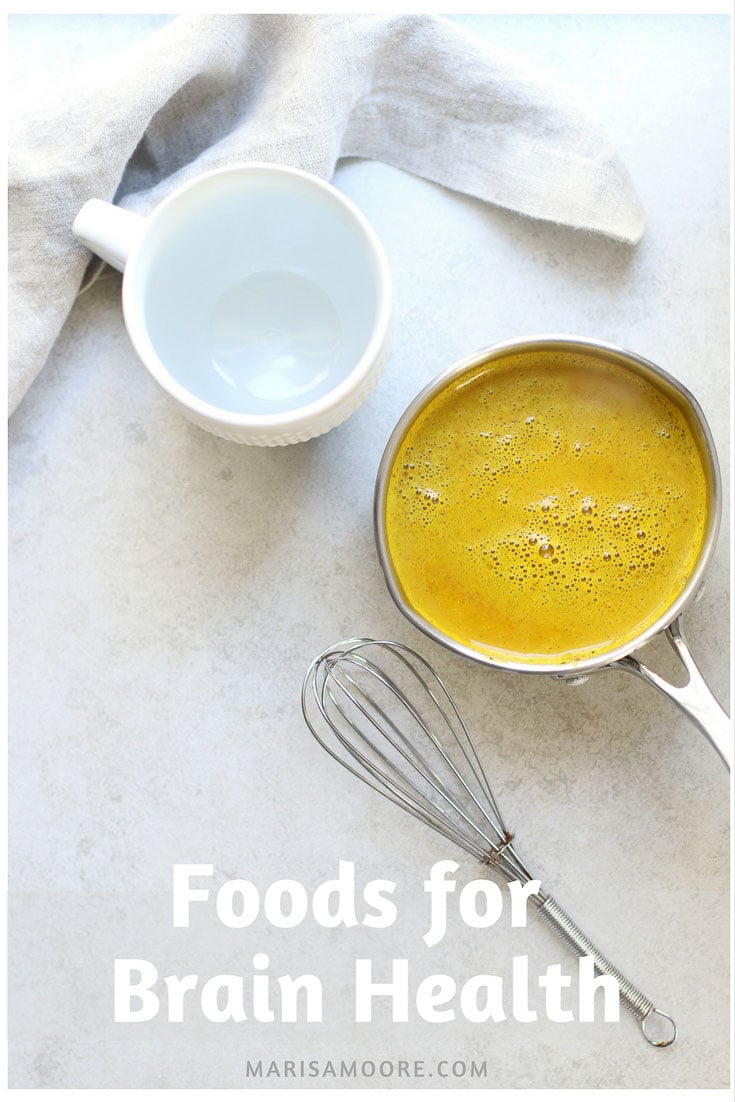

Liz
Wow- I had no idea about BDNF either! What a great experience to learn so much on the Sprouts tour. I’m so grateful you posted this and will be sharing with my mom right now!
Marisa
Ya learn something new every day, right? And yes. It was really cool to get the BTS tour with Sprouts!
Maria Adams
Really interesting post! I didn’t know about the potential benefits of sage when it comes to brain health. How much turmeric do you recommend taking a day?
Marisa
Hi Maria, I haven’t settled on any specific daily amount yet. The effective dose depends on the person and on what you’re trying to boost or treat I’d think.
Tara | Treble in the Kitchen
I love that Gaia Golden Milk mix…it is SO comforting 🙂
Marisa
I agree. It’s incredibly comforting!